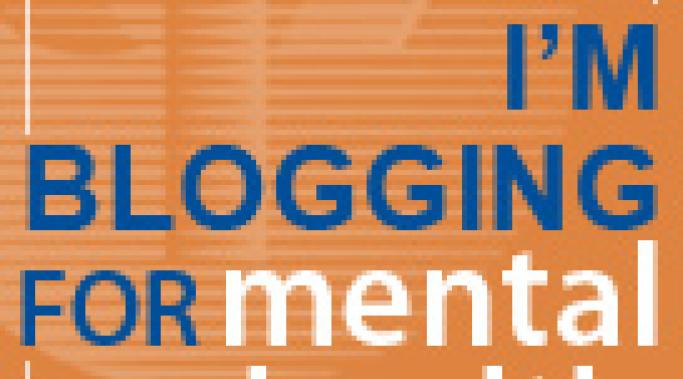Blogs
Are You Deciding Whether to Use Medication for Anxiety?
Today, we are joining the American Psychological Association Mental Health Blog Party, trying to decrease stigma and bring public awareness to mental health issues. Anxiety medication and deciding whether to medicate your anxiety are important issues!
Many people ask my recommendation when deciding to use drugs to manage their or their children's anxiety symptoms. I cannot give a recommendation since I am not an MD but I do have an opinion!
The best way to make this decision is to weigh the risks and benefits of taking the medication. And to do this, you'll need to gather some basic information.
Early on, I was very aware of addiction stigma and the stigma surrounding mental illness. That's why, even though May is designated Mental Health Awareness Month, I focus on my mental health and reducing addiction stigma every day of the year. This has not always been the case. When I was diagnosed with bipolar disorder and struggling with addiction issues over 30 years ago, I didn’t have much to honor. In fact, I pretty much hated life as I knew it.
There are lots of myths about depression that are not true. The untrue depression stories bring shame to people living with this serious mental health condition, and it prevents those who may need it most from getting the depression treatment they need. Here are just a few myths that are not true about depression.
Regular visitors to Funny In The Head know that it is a mental health humor blog. I rarely, if ever, reveal anything resembling a personal detail. As a long-term professional writer, I am very careful, and selective, about what I do and do not say. Like a spy, I know how to offer only the appearance of self-disclosure. As a mentally ill person moving incognito among “sane” citizens, one becomes a skillful actor.
Saying Goodbye to Shame and Stigma Around Mental Illness
However, I am temporarily discarding this policy. Shamelessness has been a wonderful byproduct of my recovery and there is little I am not willing to do in the battle against mental illness stigma.
When I began writing Invisible Driving (my bipolar memoir) in 1990, I realized there was no longer any room for privacy, anonymity, and secrets. Terrified, confused, and completely overwhelmed, I painstakingly recreated the bizarre and harrowing odyssey; thereby taking charge of my own healing. That, dear friends, was transformational.
The journey lasted many years; I worked hard. In diverse settings I received kindness, guidance, and wisdom from a wide spectrum of wonderful people. Triumph over fear and shame, acceptance of life as it is, celebration of self, and peace of mind, grew gradually through the incremental process of recovery.
Though the righteous may stumble,
He picks them back up.
Though the poor may have nothing
He fills up their cup.
Though the weak weep alone
And cry deserts wet
He stands right behind them
And they're not beaten yet.
It's May: Mental Health Awareness Month - and I hope you had a great Mothers' Day on Sunday.
Last week, I had the opportunity to present at the APA (American Psychiatric Association) 165th Annual Conference, about the value of a "therapeutic alliance" between caregivers (often families), healthcare providers, and PAMIs (Person Affected by Mental Illness -a word I use instead of "patient"). My co-presenter was Peter J.Weiden, MD, who advocates for the same respect, partnership and open communication.
My "credentials", next to his "MD"? Randye Kaye, MRG (Mom who Refused to Give up). Yes, I have other letters that could go after my name - but those are the ones that really matter as I speak to audiences about our family journey.
For me, my early addiction recovery program was made up of many questions and few answers. My major question was, “What do I do now?” At the time, I was unclear as what to do in addiction recovery. But if I had the opportunity to magically go back in time, I would work through my early addiction recovery program as I lay it out for you here. These are the early addiction recovery program essentials.
I have been so excited about writing for HealthyPlace that I have had trouble focusing on exactly where to begin. Ha! Can you imagine a person with ADHD not being focused? Of course you can! It's a hallmark of the disorder. What may be harder to imagine is a person with ADHD who is so focused that it is, as Dr. Larry Silver notes in an ADDitude article, "...difficult for anyone to 'reach' and interact with a person."
It is 11:22 p.m. and I'm still staring at the blank computer screen. My head hurts. My stomach feels queasy. I'm tired.
The worst part? I struggled to eat today. Not because the eating disorder voice hammered at me. Not because I felt compelled to lose weight.
But because I simply did not feel hungry.
Stress kills my appetite. Now I have to make sure it doesn't kill my recovery from anorexia.
There is an interesting, if perhaps disturbing, phenomenon in psychopharmacological drug treatment. It is the instance where a person initially has a satisfactory response to a medication, getting well, and perhaps staying well for years, only to have the illness come back at a random time in the future. The medication just “stopped” working. We have known about this for a long time with many drugs including antidepressants and anticonvulsants (mood stabilizers) and it’s sometimes referred to as antidepressant “poop-out” (I kid you not).
But this phenomenon goes against even the most basic understanding of medication, so why is it happening?







![MP900227837[1]](/sites/default/files/styles/blog_listing/public/uploads/2012/05/MP9002278371-124x180.jpg?itok=xgyGSOGl)
I haven't had a drink in 9 years and two months.
I Googled everything on the subject and have come to the conclusion it is not a relapse.
However, I am going to read labels more carefully!